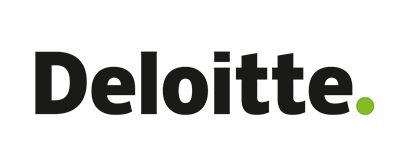The outbreak of the pandemic led to uncertainty becoming a new reality, after which the world entered a period of even more pronounced uncertainty due to the war in Ukraine, which came on a wave of inflation that was already growing rapidly. This, unfortunately, will have a negative impact on the financial sector, which is always inextricably linked to challenges
It is common knowledge that investments should always be coordinated with risk aversion, desired returns, macroeconomic expectations and the planned investment horizon. We spoke to Nebojša Nikolić, risk advisory director at Deloitte, to find out how all this is achieved today.
We’re living in turbulent times. How is the financial sector being impacted by the pandemic and the war in Ukraine?
– The financial sector is always inextricably linked to the challenges confronting the economy and the population.

Multinational companies that have their operations and part of their revenue linked to Russia and Ukraine need to make up for unexpected losses, while alongside that it is also necessary to harmonise their operations with the new lists of sanctions against Russia. New ways of reaching fresh sources of income will be sought, which won’t be an easy mission, given that demanding regulations and the banking system’s inertness are causing certain delays in the implementation of digital agendas.
Some groups will utilise the market turmoil and there will probably be further consolidate of the banking sector, and perhaps also withdrawals from the market. Rising inflation will be the main driver of further uncertainty. There’s likely to be a nominal increase of income in banks’ balance sheets, due to rising interest rates as a result of inflation. Such a situation could also impact on the expenditure side of the balance sheet through an increase in loan-loss provisions and growth in NPLs as a consequence of increased credit risk.
We all know what’s brought by this process and the fight against inflation: rising prices, higher unemployment, increased credit risk, entry into a recession
According to Serbia’s central bank, the National Bank of Serbia (NBS), the country should maintain strong, sustainable and diversified growth. Do you share that optimism?
– The road to realising these optimistic forecasts will be filled with challenges. Let’s take, for example, the fact that mutual incompatibility exists at the level of the EU and the U.S. related to the causes and impact of inflation. Let’s also take, for example, the unusual statement of European Central Bank President Christine Lagarde, who characterised rising inflation on these two continents as “a completely different beast”. This raises an additional question regarding the effective and efficient fight against inflation, as well as a question over the appropriate levers of fiscal and monetary policy that should be applied to curb inflation.
The absence of a unified stance on inflation at the global level leads to suspicions that the fight against inflation will be neither easy nor short. We all know what’s brought by this process and the fight against inflation: rising prices, higher unemployment, increased credit risk, entry into a recession.
Which areas now have the greatest investment potential and the least risk?
– As a result of increased market uncertainty, due to the war, inflationary pressures, the recurrence of the virus and Covid-19 lockdowns in China, investors at the global level are running to some safer and traditional “tangible” forms of investment: in gold, other precious metals and real estate.
We are currently seeing on the market, both around the world and on our market, an increase in the value of these investment categories, while declines are being recorded on the stock market and the cryptocurrency market. Still, exaggerated demand and the excessive influence of investors in the aforementioned investment categories can create price bubbles, which are usually followed by “bursting”, i.e., a price inversion and the return to long term price averages.